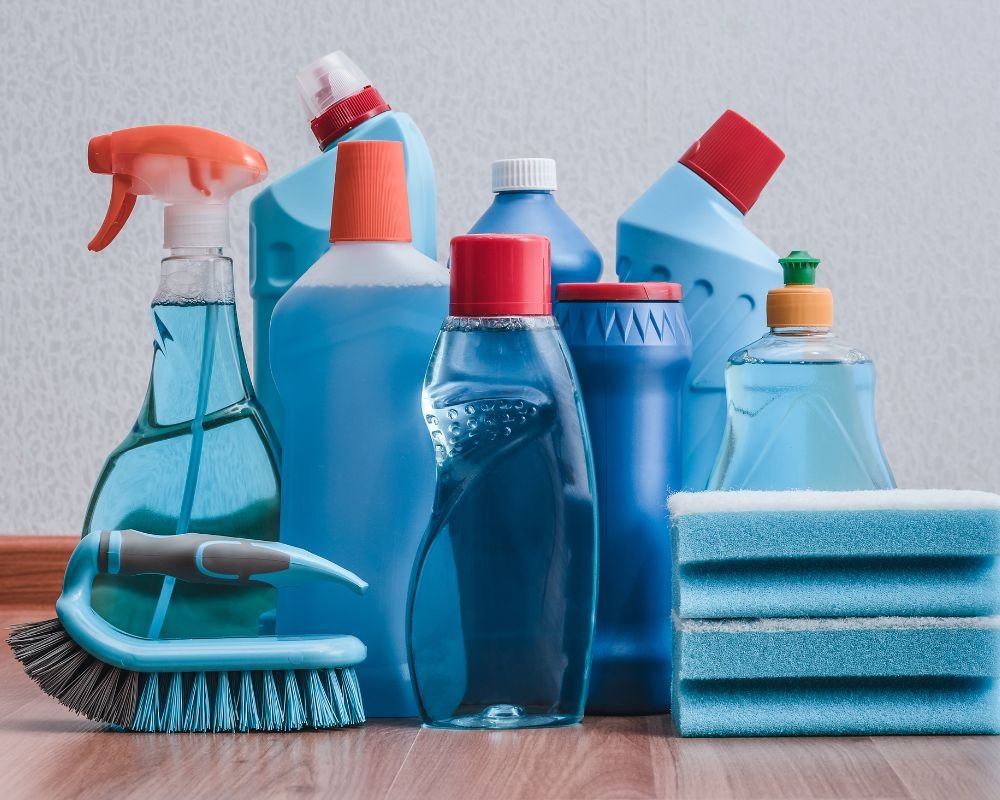There was a time when housewives relied on bleach to clean just about everything in the home. That was a long time ago. Fortunately, we all survived. These days though, there is rarely a need to use bleach in large quantities. There are so many other cleaning solutions that work just as well while simultaneously being safe to use.
We get the fact that using bleach is sometimes unavoidable. But by and large, commercial cleaning services avoid bleach whenever possible. Your cleaning crew should do likewise. Whether you pay for professional business cleaning or have your own crew on the payroll, bleach should be a cleaning solution of last resort.
Bleach Is Corrosive
‘Bleach’ is a generic name for a chemical known scientifically as sodium hypochlorite. We sometimes refer to it as ‘chlorine bleach’. Either way, bleach has historically been used as a cleaning product capable of removing stains and killing mold and bacteria. But bleach has a lot of downsides. One of them is its corrosive nature.
Sodium hypochlorite contains chlorine. In fact, chlorine is the active agent that makes bleach such an effective cleaning solution. But chlorine is also an enormously powerful oxidizer. That makes it highly corrosive. Even bleach diluted with water is more corrosive than most other cleaning solutions. It can damage all sorts of surfaces over time.
It’s Dangerous When Mixed with Other Chemicals
You probably know that chlorine can be extremely dangerous when mixed with other chemicals. More than one commercial cleaning service employee has discovered as much the hard way. Indeed, how many news stories have you read detailing mishaps involving employees inadvertently mixing chlorine with ammonia?
In addition to ammonia, bleach should never be combined with:
- vinegar
- isopropyl alcohol
- glass cleaner.
Combining bleach with these other chemicals can create lethal gases. For example, bleach and alcohol create chloroform. Bleach and vinegar can react to produce an excess of chlorine gas.
There Are Other Safety Issues As Well
In addition to the potential for dangerous chemical reactions, there are other safety issues relating to bleach as a cleaning chemical. For starters, it is a serious skin irritant. Exposing the skin to excessive amounts of bleach can lead to burning and other issues. If it ever gets into an open wound, watch out.
Splashing bleach in the eyes can cause serious damage to both the eyes themselves and the sensitive skin around them. If cleaning crews are ever forced to work with bleach because they have no other choice, protective eyewear is a must.
There Are Better Alternatives
We don’t want to finish this post dwelling on the negative. Sure, there are a lot of concerns with bleach as a cleaning chemical. But there is a positive side to this discussion as well: there are better alternatives to bleach for most commercial and business cleaning applications.
Over the years, scientists and engineers have developed amazingly effective cleaning solutions that are not corrosive and do not pose significant danger to humans. But that’s not all. If your company aims to practice green cleaning, you will be happy to know that there is no shortage of available cleaning products that are non-toxic, safe for the environment, and sustainable.
As a commercial cleaning service, we do our best to avoid bleach when we can. If you ever want to know what we use to clean your facility, do not be afraid to ask. We strive to always use the safest but most effective cleaning solutions on the market. We want to clean your facility thoroughly while keeping your employees and ours safe.


